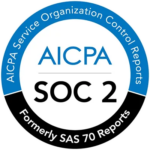The headline reads Delayed Shipment of Electronics Cost Retailer $50,000 in Lost Revenue.
In a recent incident, a leading electronics retailer experienced a delay in the shipment of their latest product line. The retailer had scheduled a major product launch and marketing campaign to coincide with the arrival of their new inventory, but due to shipping delays, the retailer had to postpone the launch by several weeks.
The delay resulted in revenue loss for the retailer as customers sought alternative options from competitors. The retailer also incurred additional expenses related to the storage and handling of the delayed goods, amounting to $10,000 in additional costs. Furthermore, the company had to rework the entire marketing campaign, incurring an additional $5,000 in expenses to create new advertising materials and promotional strategies. Overall, the delay in the electronics shipment cost the retailer approximately $50,000 in lost revenue and additional expenses, highlighting the importance of timely and reliable freight shipping in the retail industry.
While this is a fictitious story, this type of thing often happens when shipping freight. Is this the result of poor planning by the electronics retailer or a negligent act by the carrier? Who is responsible, and does the retailer have a right to recover the estimated ~$50,000 in losses? Keep reading to find out.
What are Special/Consequential Damages?
This incident is an example of “Special/Consequential Damages.” Consequential damages, also known as special damages, refer to indirect losses incurred by a party due to a breach of contract or negligence by another party. These damages are distinct from general damages that directly relate to the value of the goods, such as the cost of replacement or repair. In freight shipping, special damages include any expenses resulting from failure to deliver goods on time or in good condition, such as lost profits, additional storage fees, or extra labor costs.
- Delayed delivery of goods leads to lost profits or missed deadlines for production.
- Damaged or lost items during shipping, resulting in additional costs for replacement or repair
- Expenses incurred due to rerouting or reshipping goods, such as storage fees or expedited shipping charges
- Additional labor costs or overtime pay to handle delayed or damaged shipments.
An “Act of God” refers to unforeseen natural events that disqualify a shipment from being eligible for a special/consequential damages claim. An act of God could be a truck breakdown, adamweather events, etc. In these instances, the carrier wouldn’t be liable for special/consequential damages. However, if the shipper can prove the carrier mishandled, damaged, or failed to live up to their contractual obligations that led to the damage, the shipper may have the right to pursue a special/consequential damage claim.
Proving Negligence in a Special/Consequential Damages Claim
Proving negligence in a special/consequential damages freight claim isn’t always easy but oh-so-satisfying when you succeed. With fair compensation at stake, it’s worth putting in the effort! Here are some steps to consider:
- Gather Evidence: Collect all relevant documents, such as the bill of lading, delivery receipt, and any correspondence related to the shipment.
- Review the Contract: Check the contract terms between you and the carrier to determine liability for damages. There’s a good possibility there is a liability provision in the contract that neither party is liable for any special, indirect, incidental, or special/consequential damages, including loss of profits, information, or interruption, even if warned of such damages.
- Document the Damage: Take photographs of the damage and note any visible signs of mishandling or improper packaging.
- Assess the Special/Consequential Damages: Determine the extent of the financial loss resulting from the damage to the shipment.
- Establish Negligence: You must prove the carrier failed to exercise reasonable care in handling and transporting the cargo. The proof must clearly show how the carrier’s negligence led to damage, late arrival, shortage, or concealed damages leading to special/consequential losses.
- Seek Legal Assistance: Consult with an experienced attorney specializing in freight claims to ensure you present your case effectively.
Following these steps can increase your chances of successfully proving negligence in a special/consequential damages freight claim and securing appropriate compensation for your losses.
Trust Freightclaims.com to Handle Special/Consequential Damages in Freight Claims
Seeking reimbursement for special/consequential damages requires extensive documentation and freight claims expertise, making it challenging for companies with limited resources, especially small and medium-sized businesses. These damages can result in financial losses and disrupt business operations and customer satisfaction.
If you are tired of complicated claims management, FreightClaims.com simplifies the process and improves the chances of winning your claim. We offer advanced analytics for tracking open claims, prioritizing based on claim age, and identifying products with frequent claims. Our user-friendly platform also streamlines communication with carriers and insurance companies, making managing and resolving freight claims effortless.
Our team of experts has years of experience handling freight claims and can guide the best course of action for each claim. They work with carriers to negotiate settlements and ensure your business receives compensation for its losses.
FreightClaims.com offers additional services such as advanced analytics for tracking open claims, prioritizing based on claim age, and identifying products with frequent claims. Request a demo from FreightClaims.com today to see how our user-friendly platform streamlines communication with carriers and insurance companies, making managing and resolving freight claims effortless.


